Better living conditions for displaced people in Rakhine State
22 April 2022
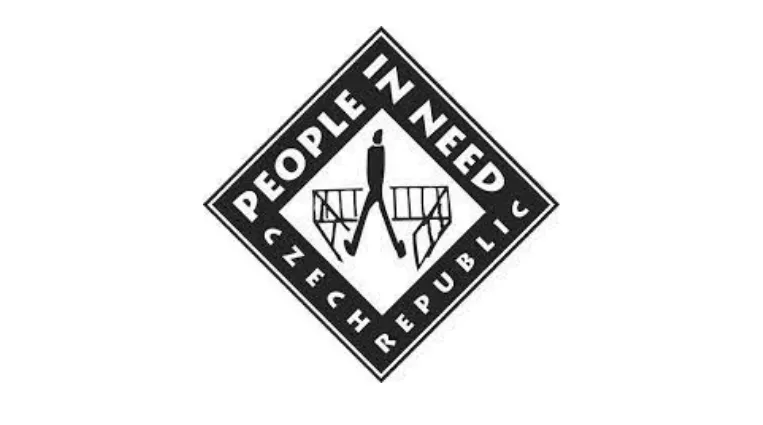

After three years of conflict in Rakhine State, internally displaced people (IDPs) face many challenges. Due to the armed conflicts between the Myanmar Armed Forces (MAF) and the Arakan Army (AA) lasting from late 2018 to November 2020, many still live in makeshift shelters across the state.
People in Need (PIN) continues to deliver humanitarian assistance to conflict-affected populations in Rakhine State. Before the rainy season begins, it is essential to maintain and repair makeshift shelters. With financial support from the Myanmar Humanitarian Fund (MHF), PIN provided emergency shelter kits to 750 households, alongside shelter kits provided by UNHCR. Additionally, PIN provided 235 collective shelter sets to 11 internal displacement sites in Mrauk U and Kyauktaw townships, Rakhine State in 2021.
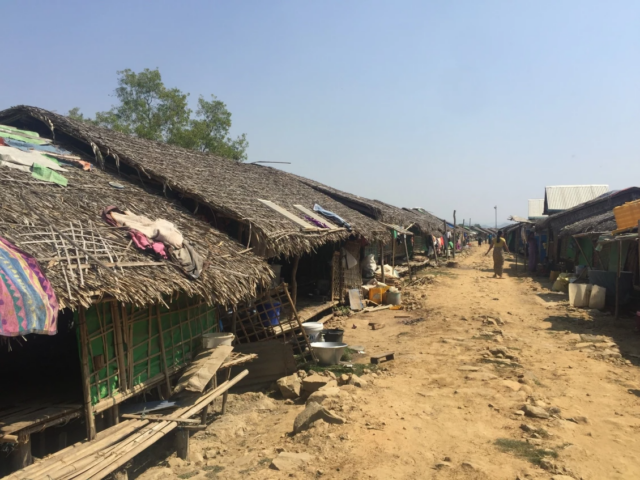
PIN address the essential needs of IDPs as per their requests, together with the shelter kits supported by UNHCR, PIN distribute additional shelter kits, which include traditional building materials items such as bamboo, myaw post, and thatching/nipa palm leaves as of building materials for traditional styles for 9 targeted IDP sites in Mrauk U U township. (Author: People in Need)
Urgent requirements for sheltering
U Ba Kyaw, a site leader at the Pya Hla IDP site in Mrauk U township, shares his concerns regarding the accommodation of IDPs sheltering there, “Our shelters are made of bamboo and tarpaulin, created in previous years as a temporary measure. Most of our shelters at the Pya Hla site where more than 900 people are sheltering are damaged and IDPs are facing difficulties living there. Among them, 50 households urgently need to reconstruct their entire home.” said U Ba Kyaw. “Before the rainy season, at least 50 households returned to their villages in Pauktaw township, but most of them returned soon after because Myanmar military troops are residing near their village. They are afraid and do not dare go back again.”
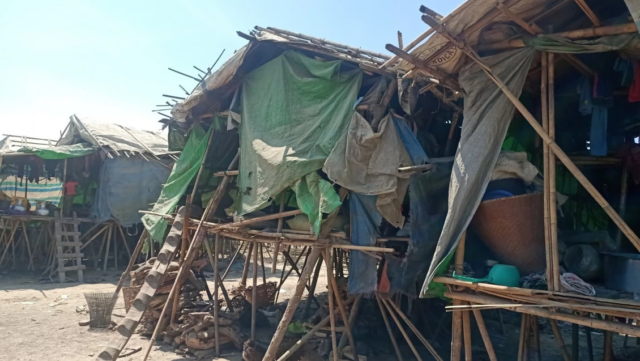
Access to safe drinking water in dry season is challenging in Rakhine state, with the most vulnerable people in IDP sites. Through this challenge, PIN and its partners organizations have provided emergency water trucking to cover the water shortages in IDP sites and distributed water storage tanks, LifeStraw sawyer water filter, and water treatment solutions to over 16,000 people in the IDP sites in Mrauk-U, Minbya, Kyauktaw and Ponnagyun townships. (Author: People in Need)
He adds, “PIN distributed shelter kits and other necessities aids to us, it was very helpful. Pya Hla site is now sheltered in the compound of a Buddhist monastery. Some houses moved outside of the monastery compound and were rebuilt again. We need more support for shelters. However, international organisations and UN agencies provide us with shelter, food, and cash distributions. Thank you to these organisations and donors for supporting us.”
PIN plans to support these needs by distributing an additional 230 emergency shelter kits to 9 displacement sites in 2022 with support from MHF.
Shelter and NFI materials support for IDP sites
Rakhine state is part of the most disaster-affected areas in Myanmar. It is regularly impacted by cyclones and floods, and displaced people are most vulnerable. During the rainy season, most IDPs are facing challenging living conditions in IDP sites. Temporary shelters, built in early 2019, need immediate repair or reconstruction. IDPs in these sites are reliant on aid assistance provided by international and national organisations.
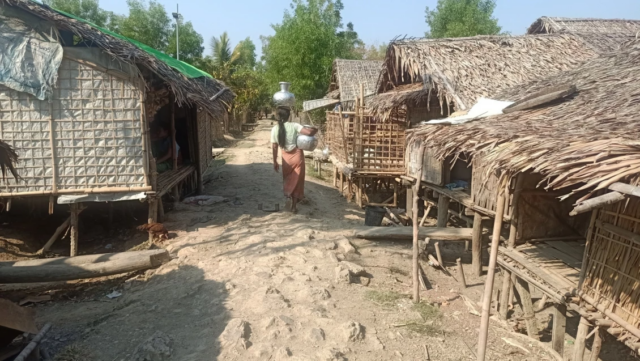
PIN address the essential needs of IDPs as per their requests, together with the shelter kits supported by UNHCR, PIN distribute additional shelter kits, which include traditional building materials items such as bamboo, myaw post, and thatching/nipa palm leaves as of building materials for traditional styles for 9 targeted IDP sites in Mrauk U U township. (Author: People in Need)
Daw War War Naing, a mother of three who lives in Wet Hla IDP site, Mrauk U township, says, “Our house needs to be repaired before the rainy season comes. We already face difficulties and prices are skyrocketing. We cannot afford to buy wood and bamboo to rebuild the house. That is why we are waiting for the shelter kits from international organisations and relevant governmental officials. Last year, PIN provided shelter kits that were useful for us. However, we need to repair or rebuild soon.”
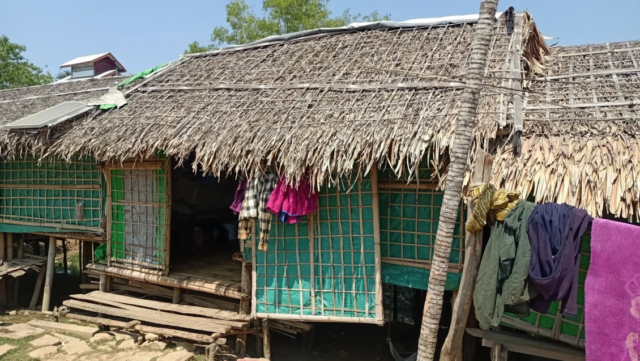
PIN address the essential needs of IDPs as per their requests, together with the shelter kits supported by UNHCR, PIN distribute additional shelter kits, which include traditional building materials items such as bamboo, myaw post, and thatching/nipa palm leaves as of building materials for traditional styles for 9 targeted IDP sites in Mrauk U U township. (Author: People in Need)
Daw Yin Nu Sein, a 62-year-old woman, lives at the Wet Hla IDP site with her granddaughter. She already rebuilt her small hut by borrowing money because it was destroyed by strong winds and weather. “I cannot wait until assistance comes because my small hut was already damaged. Even though I do not have money to rebuild the house, I borrowed it from others at high rates. This small hut cost 80,000 kyats (USD 50). Regardless of borrowing money, I was afraid that if heavy rain and strong winds came, we could not stay at our hut.” she explains.
In 2022, PIN address the essential needs of IDPs as per their requests. Together with shelter kits supported by UNHCR, PIN distributes additional shelter kits, which include traditional building materials such as bamboo, myaw post, and thatching/nipa palm leaves for 9 targeted IDP sites in Mrauk U township, Rakhine State.
Announcements
21 May 2025
Open letter: Malaysia must lead ASEAN with principle, not hypocrisy, to address the Myanmar crisis

Progressive Voice is a participatory rights-based policy research and advocacy organization rooted in civil society, that maintains strong networks and relationships with grassroots organizations and community-based organizations throughout Myanmar. It acts as a bridge to the international community and international policymakers by amplifying voices from the ground, and advocating for a rights-based policy narrative.